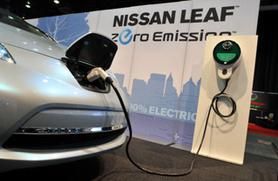The electric car is sure to figure prominently in any conversation about green vehicles. But the subject raises lots of questions. Are electric cars more environmentally friendly than traditional gas-powered vehicles or alternatives like cars that run on hydrogen? And why are electric cars so expensive? We're going to answer these questions (and eight more like them) right now.
Advertisement
